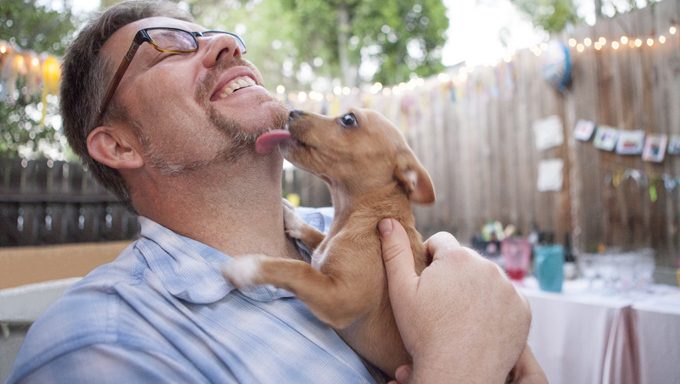Bringing home a new puppy is a great adventure - full of joy, but also with new responsibilities. By being well prepared in advance, you can make the transition a lot smoother for both yourself and your pup. These 7 things you definitely shouldn't forget before welcoming your new family member.
1. A safe place to sleep
A dog crate provides your puppy with a private, safe place to rest.
This not only helps teach potty training, but also provides structure and peace of mind.
The crate does not have to be large - enough room to stand, turn and lie down is sufficient.
Preferably choose an adjustable crate that grows with your dog.
2. Healthy food and tasty rewards
The right feed is essential for a good start.
Ask your veterinarian for advice on appropriate puppy food for your dog's breed and age.
Healthy snacks are useful for rewards during training, but don't overdo it - balance is important.
3. A sturdy collar and leash
Choose an adjustable collar that can grow with your puppy.
Check fit regularly: two fingers should fit between neck and strap.
A lightweight leash is ideal for beginning puppies who have yet to learn to walk on a leash.
4. A clear dog tag
A token with name, phone number and possibly address is a small investment that can mean a lot.
Even indoor dogs can escape unexpectedly - a badge increases the chances that your pup will be found quickly.
5. Feed and water bowls
Invest in sturdy, non-slip containers made of stainless steel or ceramic.
They are durable, easy to clean and hygienic.
A raised feeding bowl can also provide comfort, especially for medium and large dog breeds.
6. Toys for discovery and learning
Puppies are curious and need mental challenges.
Provide toys with different textures, sounds and shapes.
Chew toys also help with teething and prevent them from gnawing on furniture.
7. Patience and a training plan
The first few weeks can be intense: your puppy will bite, chew, pee in the house and test boundaries.
Stay calm and consistent because behavior training is a learning process.
Consider a puppy class or a consultation with a behaviorist for a good start.
Also a reliable dog sitter can help maintain routines when you are away from home yourself.
Good preparation makes the difference between stress and success.
With these basic necessities, a good dose of patience and lots of love, you will give your puppy the best start in his new home.








